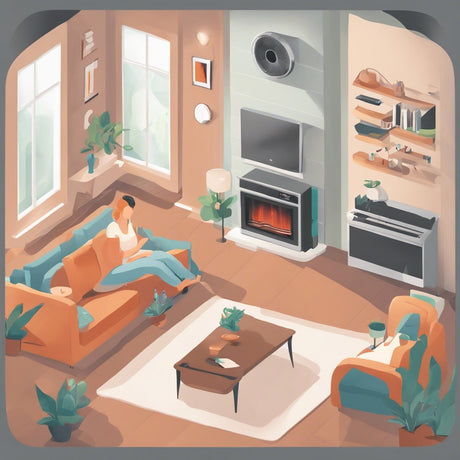- No products in the cart.
Achieving Ultimate Comfort: Maximizing Efficiency with Zoned HVAC Systems
08
Mar
Introduction: In the realm of home comfort, traditional HVAC systems have long been the go-to solution for regulating indoor temperatures. However, with advancements in technology and a growing emphasis on energy efficiency, zoned HVAC systems have emerged as a game-changer. These innovative systems offer homeowners a customizable approach to heating and cooling, providing tailored comfort to individual rooms or zones within a house. In this blog post, we'll delve into the concept of zoned HVAC systems, exploring how they work and the benefits they bring in terms of maximizing comfort and efficiency.
Understanding Zoned HVAC Systems: Zoned HVAC systems operate on the principle of dividing a home into separate zones, each controlled independently by its thermostat. This zoning allows for precise temperature management based on factors such as room usage, occupancy patterns, and individual preferences. Rather than treating the entire house as a single entity, zoned systems enable targeted heating and cooling, ensuring optimal comfort levels in each zone while minimizing energy waste.
How Zoned HVAC Systems Work: At the core of a zoned HVAC system are dampers installed within the ductwork, which regulate airflow to specific zones. These dampers can open or close as needed, directing conditioned air to where it's required most. Each zone is equipped with its thermostat, allowing occupants to set and maintain their desired temperature independently of other zones. Additionally, modern zoned systems often integrate smart technology, enabling remote access and automated scheduling for further convenience and energy savings.
Benefits of Zoned HVAC Systems:
-
Personalized Comfort: Zoned systems empower homeowners to customize temperature settings for individual zones, catering to varying preferences and usage patterns. Whether it's keeping bedrooms cool for a good night's sleep or maintaining a cozy temperature in the living room during family gatherings, zoned HVAC ensures everyone's comfort needs are met.
-
Energy Efficiency: By heating or cooling only the zones in use, zoned systems eliminate the need to condition unoccupied or seldom-used spaces. This targeted approach reduces energy consumption, resulting in lower utility bills and a reduced environmental footprint. Moreover, the ability to fine-tune temperature settings minimizes overuse of heating and cooling, further enhancing efficiency.
-
Enhanced Control: With zoned HVAC systems, homeowners gain greater control over their indoor environment. Whether through programmable thermostats or smartphone apps, users can adjust settings remotely, schedule temperature changes, and monitor energy usage in real-time. This level of control not only optimizes comfort but also promotes energy-conscious habits.
-
Consistent Temperature Distribution: Traditional HVAC systems often struggle to maintain consistent temperatures throughout a home, leading to hot and cold spots. Zoned systems address this issue by delivering precise airflow to each zone, ensuring uniform comfort across the entire house. Say goodbye to battling with fluctuating temperatures and hello to a consistently comfortable indoor environment.
-
Extended Equipment Lifespan: By reducing the workload on HVAC equipment, zoned systems can prolong the lifespan of heating and cooling units. With less frequent cycling and more efficient operation, components experience less wear and tear, resulting in fewer breakdowns and repairs over time. This longevity translates to cost savings for homeowners and a more reliable HVAC system.
In Conclusion: Zoned HVAC systems represent a paradigm shift in residential heating and cooling, offering a blend of comfort, efficiency, and control unparalleled by traditional systems. By dividing a home into independently controlled zones, these systems optimize comfort while minimizing energy waste, resulting in a win-win for homeowners and the environment alike. Whether you're building a new home or considering an upgrade, investing in a zoned HVAC system is a step towards a more comfortable, sustainable future.













